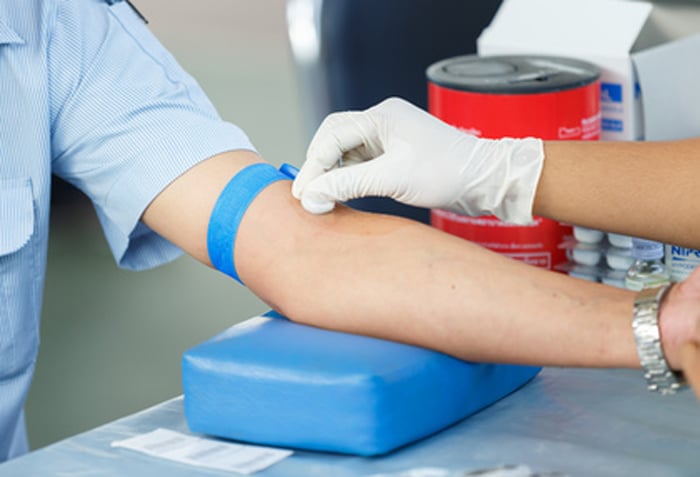In the medical field, there are various professionals who play crucial roles in patient care and treatment. One such role is that of a person who draws blood, an important process in diagnosing and monitoring various health conditions. This individual is known by several titles, each representing their specific training and expertise in drawing blood safely and efficiently.
Who is a Person That Draws Blood Called?
1. Phlebotomist:
– A phlebotomist is a healthcare professional specifically trained in drawing blood from patients for various medical purposes. They are skilled in locating veins, selecting the appropriate method for drawing blood, and ensuring the safety and comfort of the patient throughout the procedure. Phlebotomists work in a variety of settings, including hospitals, clinics, laboratories, and blood donation centers.
2. Medical Laboratory Technician (MLT):
– Medical laboratory technicians, also known as MLTs, are trained to perform a wide range of laboratory tests, including drawing blood specimens. In addition to their phlebotomy skills, MLTs are knowledgeable in analyzing blood samples, interpreting test results, and maintaining laboratory equipment. They play a vital role in assisting healthcare providers in diagnosing and monitoring patients’ conditions.
3. Nurse:
– Nurses, particularly those specializing in areas such as emergency medicine, critical care, or oncology, may also be responsible for drawing blood from patients. Nurses undergo comprehensive training in various nursing procedures, including phlebotomy, to provide comprehensive care to their patients. They are skilled in performing blood draws while prioritizing patient comfort and safety.
Benefits and Practical Tips for Phlebotomists:
– As a phlebotomist, there are several benefits to pursuing a career in blood drawing, including:
1. Job Stability: Phlebotomists are in high demand across healthcare settings, ensuring job security and opportunities for career advancement.
2. Fulfilling Work: Drawing blood plays a crucial role in the diagnostic process, allowing phlebotomists to contribute to patient care and treatment.
3. Varied Work Settings: Phlebotomists have the flexibility to work in hospitals, clinics, laboratories, and blood donation centers, with opportunities to specialize in different areas.
– To excel in the role of a phlebotomist, consider the following practical tips:
1. Practice Proper Technique: Ensure you are well-trained in phlebotomy procedures and follow best practices to minimize the risk of complications.
2. Communicate Effectively: Establish a rapport with patients to alleviate anxiety and ensure a smooth blood draw process.
3. Stay Updated: Stay informed about the latest developments in phlebotomy techniques and equipment to provide the best possible care to patients.
First Hand Experience:
“As a phlebotomist, I have the privilege of playing a crucial role in the diagnostic process, helping healthcare providers accurately diagnose and treat patients’ conditions. Drawing blood requires precision, empathy, and excellent communication skills to ensure a positive experience for the patient. I take pride in my ability to make patients feel comfortable and at ease during the blood draw process, knowing that my work contributes to their overall health and well-being.”
a person who draws blood may be referred to as a phlebotomist, medical laboratory technician (MLT), or nurse, depending on their specific training and role within the healthcare setting. Each of these professionals plays a vital role in collecting blood samples for diagnostic purposes, contributing to patient care and treatment. Pursuing a career in phlebotomy offers job stability, fulfilling work, and opportunities for professional growth. By practicing proper techniques, effective communication, and staying updated on industry trends, phlebotomists can excel in their role and provide exceptional care to patients.
